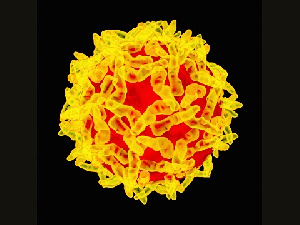
Ugandan health minister Ruth Aceng on Friday confirmed that three people have been killed in a yellow fever outbreak in the midwestern and northwestern parts of the country.
Two adult men, who were 18 and 21 and dealing in cutting and trading timber between Uganda and neighboring South Sudan, succumbed to the virus in the northwestern district of Moyo earlier this month, and a third male victim, a 37-year-old cattle keeper, died last November in the midwestern district of Buliisa, the minister said.
The cattle keeper’s wife, 38, also tested positive of the yellow fever virus, on January 22.
“Blood samples were withdrawn and sent for testing at Uganda Virus Research Institute (UVRI). Results from UVRI confirmed yellow fever infection,” Aceng said.
She said the health ministry and the World Health Organization have dispatched rapid response teams to Moyo and Buliisa districts to “support investigations, active search for cases, community mobilisation and sensitization.”
Uganda has requested yellow fever vaccines from the International Coordination Group that manages global stock piles of yellow fever and meningitis vaccines, Aceng said.
“We anticipate that within the next two weeks, vaccines will be available and vaccination will commence in Moyo and Buliisa districts,” she said.
Aceng said her ministry has applied with the Global Vaccine Alliance and the WHO for inclusion of the yellow fever vaccination into its routine immunization schedule.
“Having faced four outbreaks, Uganda now qualifies to introduce yellow fever vaccine as a long-term measure to prevent yellow fever outbreaks,” she said. The minister said all travellers in and out of the country must be vaccinated against yellow fever.
“Travelers are urged to comply with this travel requirement to ensure the risk of spread of yellow fever through international travel is minimized,” Aceng said.
“The ministry would also like to re-assure Ugandans and all other residents that with the experience and expertise available in the country, the disease will be contained,” she said.
The yellow fever is mostly caused by a type of mosquitoes called “Aedes Aepyti” found in the tropics and sub-tropics. It is transmitted from person to person through mosquitoes, although there are also forest monkeys that transmit it.
According to the ministry, symptoms of the disease include high fever, headache, general body aches, fatigue, vomiting, blood in urine or stool and yellow discoloration of skin or eyes.
If not detected and treated on time, the disease will affect the blood and the victims will experience renal failure and possible coma.
Source: Theeastafrican.co.ke
 Home Of Ghana News Ghana News, Entertainment And More
Home Of Ghana News Ghana News, Entertainment And More




